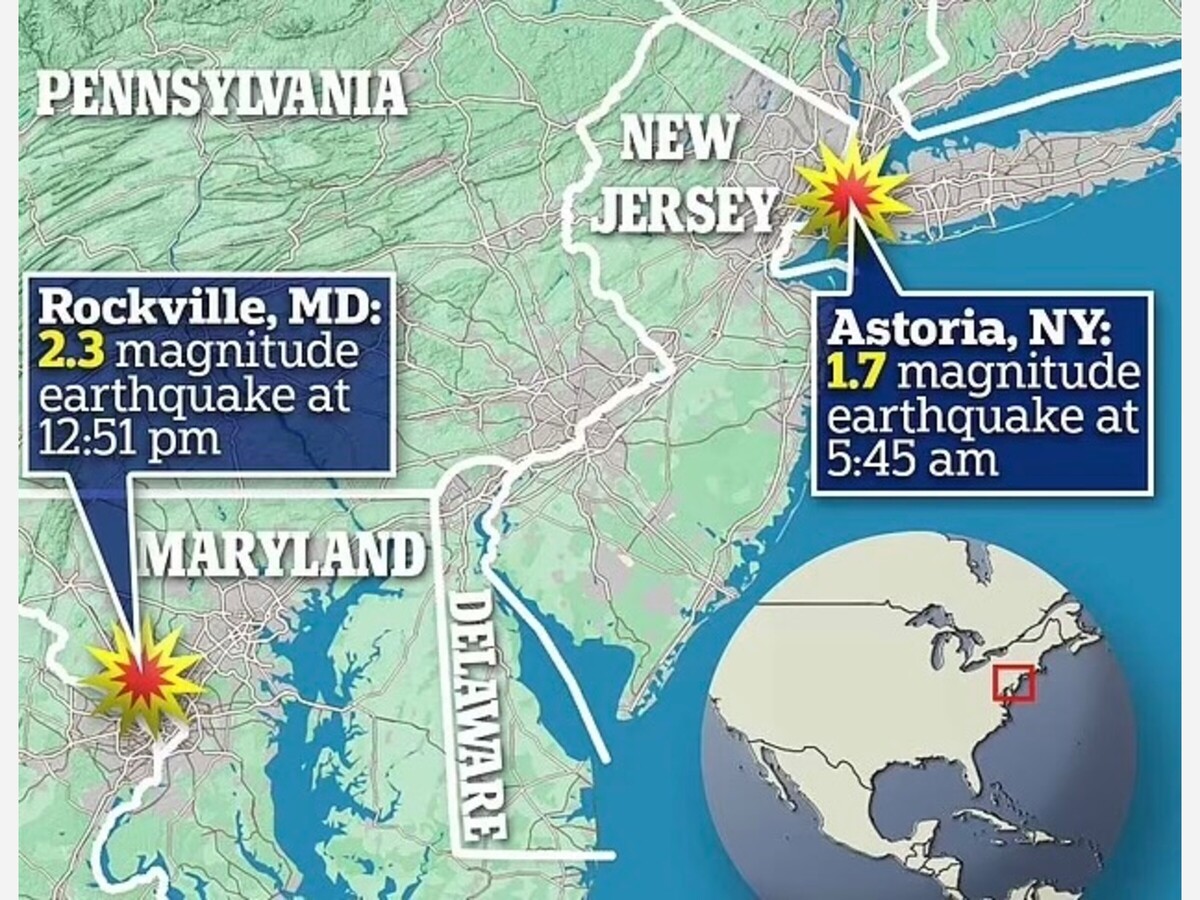Image

Last night’s earthquake in Rockville reminds us of earth’s great natural power. News all over the country and beyond report that a 2.3 magnitude earthquake, estimated to be 15 kilometers deep, hit at 12.51 am in Rockville, Maryland, on Tuesday.
Here are some important reminders to think about at this time.
What to do and not do during an earthquake:
Do’s
- If you are indoors, stay there and get under a desk or table and hang on to it (Drop, Cover, and Hold on!), or move into a hallway or against an inside wall. This position protects you from falling but allows you to still move if necessary. Stay clear of windows, fireplaces, and heavy furniture or appliances. Get out of the kitchen, which is a dangerous place (things can fall on you). For example, dishes, glasses, and appliances can fall and break, causing injury.
If you are outside, get into the open, away from buildings, power lines, chimneys, and anything else that might fall on you.
- If you are driving, stop, but carefully. Move your car as far out of traffic as possible. Do not stop on or under a bridge or overpass or under trees, light posts, power lines, or signs. Stay inside your car until the shaking stops. When you resume driving, watch for breaks in the pavement, fallen rocks, and bumps in the road at bridge approaches.
Don'ts:
- Do not run outside while the building is shaking or while there is danger of falling and hurting yourself or being hit by falling glass or debris.
- Do not use elevators. Elevators can get stuck between floors, and you could be trapped inside. If the power goes out, you could be stuck in the dark.
- Do not use matches, lighters, camp stoves or barbecues, electrical equipment, appliances until you are sure there are no gas leaks. They may create a spark that could ignite leaking gas and cause an explosion and fire.
The reason for these do's and don'ts is to minimize the risk of injury during an earthquake. For example, getting under a desk or table provides protection from falling objects, while staying away from windows and heavy furniture reduces the risk of injury from broken glass or falling objects.
To minimize financial hardships, you can take the following steps:
1. Organize important documents such as identification papers, insurance policies, and financial records in a secure and easily accessible location.
2. Consider purchasing earthquake insurance to protect your property and belongings. Not all companies offer this coverage however.
3. Identify potential hazards in your home and take steps to secure them. For example, you can secure bookcases, cabinets, and other heavy furniture to the wall using brackets or straps.
It is important to be prepared for such events by having an emergency kit, a plan, and staying informed about the latest developments. Here are some steps you can take to be more prepared for an earthquake:
1. Secure your space by identifying hazards and securing moveable items.
2. Plan to be safe by creating a disaster plan and deciding how you will communicate in an emergency.
3. Organize disaster supplies in convenient locations.
4. Minimize financial hardship by organizing important documents.
A Rockville resident reported on X , formally Twitter, : 'I didn’t feel it but heard what I thought was a big jet overhead at the time of the quake.'
A second wrote: 'Rattled our house here in Rockville for a few seconds.'
Another said: 'Sounded like thunder rumbling here and woke up the dog, and the dog woke me up'.
There were no injuries in last night’s quake in Maryland.
Keep abreast of earthquakes by clicking here.
Image sourced from Daily Mail.com.